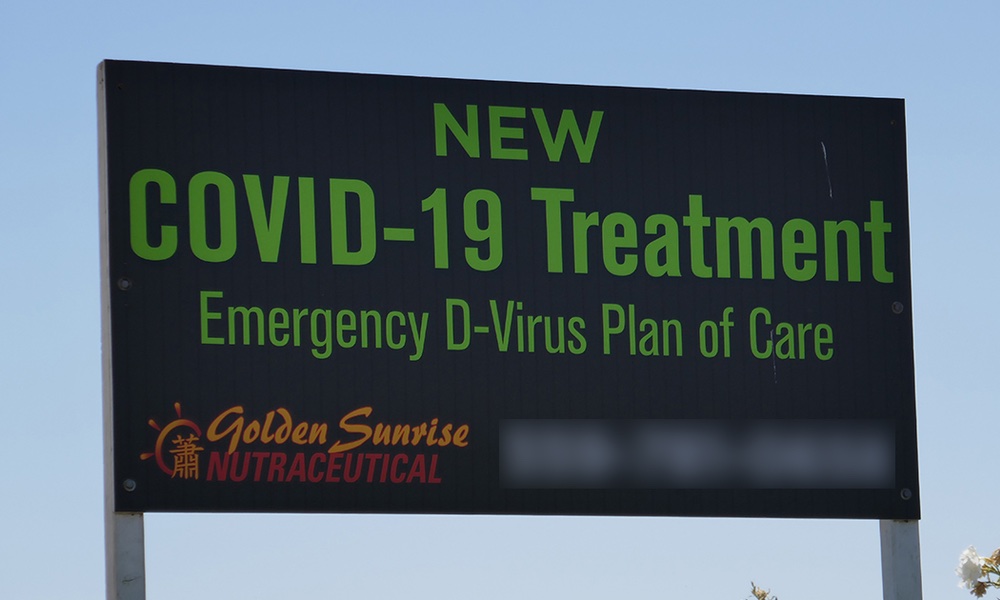It's amazing what you can buy online these days. Unfortunately, this includes fake treatments and testing kits for COVID-19.
How serious is the problem? By March, Amazon had already reported removing more than a million fake COVID-19 products.
When disaster strikes, it gives unscrupulous entrepreneurs an opportunity to prey on people’s anxieties and offer them products and services that promise way more than they can deliver. The current SARS CoV-2 pandemic is no exception.
Looking at posts that appeared on Twitter and Instagram from March to May of this year, researchers from the University of California, San Diego have been analyzing these dubious offerings. They identified nearly 2,000 postings about phony COVID-19 health products, fraudulent financial scams and other related shady deals.
First came a wave of questionable immunity-boosting treatments and cures. One post offered a 14-day cure for only €99.00. This wave was followed by another of highly suspect testing kits, according to the authorsA third wave of phony pharmaceutical treatments is already underway, the authors say, and it will only get worse when an effective vaccine or other treatment for the disease is eventually announced.
A third wave of phony pharmaceutical treatments is already underway, the authors say, and it will only get worse when an effective vaccine or other treatment for the disease is eventually announced.
There are ways to spot these fraudulent offerings and avoid them, according to Timothy Mackey, lead author of the study and associate adjunct professor at UC San Diego’s School of Medicine.
- If it sounds too good to be true, it probably is. Look for mentions of bulk or rapid sales, cheap pricing and questionable claims such as FDA approval or specific certifications.
- Products imported from another country. If you're a United States consumer, it is likely illegal to import products such as COVID-19 tests from another country.
- Questionable contact methods. If the seller is conducting business or a transaction through social media direct messages or another non-traditional communications application, including Skype or WhatsApp, it probably isn't legitimate.
“We recommend that anyone concerned of contracting COVID-19 or hoping to be tested first work with their personal health care provider or local public health agency to ensure safe access to testing or treatment, and report any suspicious activity to federal authorities,” said Mackey.
The study appears in JMIR Public Health & Surveillance.





